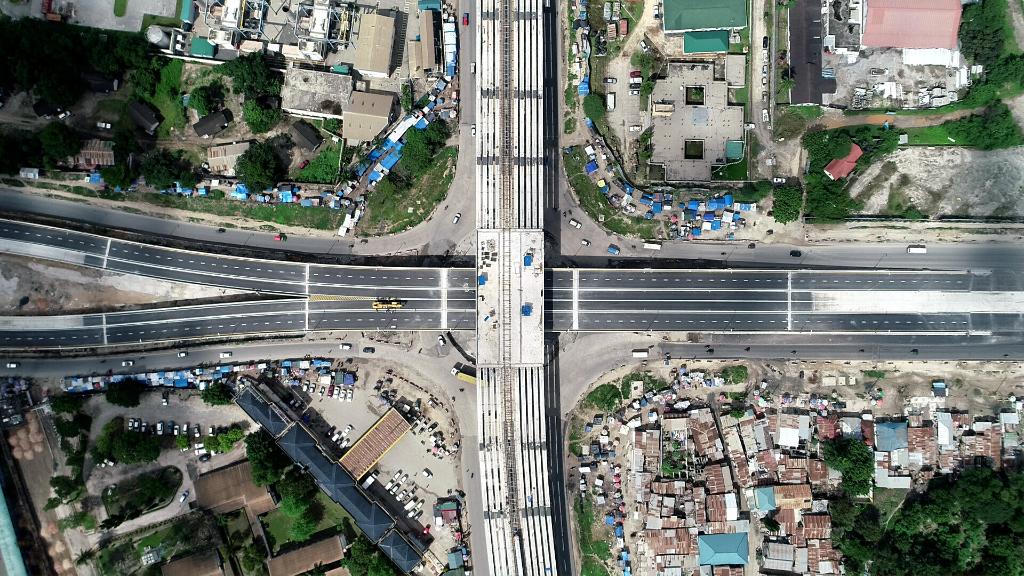Twenty-year-old Tanzanian university student Queen Paul tells how she has benefited from a Chinese-aided library realized through the Forum on China-Africa Cooperation (FOCAC) that for decades keeps nourishing China-Africa ties.
DAR ES SALAAM, Dec. 28 (Xinhua) — For Queen Paul, the Forum on China-Africa Cooperation (FOCAC) has left an indelible memory in her mind as she recalls how the Chinese-built library at Tanzania’s state-run University of Dar es Salaam (UDSM) has helped her to advance her studies in a friendly academic environment provided by the library.
The 20-year-old, who is a second-year student pursuing a Bachelor of Science Degree in Geomatics Engineering at UDSM, told Xinhua in a recent interview that the Chinese government-aided library built under FOCAC is a beacon of education at the country’s leading higher learning institution.
“The library is very well organized in information and communications technology where a student can access literature one needs from across the world in the blink of an eye,” said Queen.
The landmark library is constructed in a space of 20,000 square meters and houses over 800,000 books on various disciplines.
Kelefa Mwantimwa, director of the library, told Xinhua that the facility, an outcome of the FOCAC, has changed the way students are learning at the university.
“Before the Chinese built this library, students used to squeeze themselves in a small library that accommodated less than 700 students,” said Mwantimwa, adding that the students were sometimes engaged in brawls as they fought for space and chairs.
“But the new library can accommodate over 2,600 at one time in a very friendly learning environment with over 800,000 books at their disposal,” he said.
Apart from being used as an academic platform, the library is also being used as a tourist destination, and teaching place for primary school pupils that visit the library on weekends, Mwantimwa said.
Humphrey Moshi, a professor of economics at the UDSM and director of the Center for Chinese Studies in Tanzania, said FOCAC has helped Tanzania in improving the business environment in a number of ways.
For example, the construction of roads, bridges, railways, airports, seaports, and power stations have been important vehicles for attracting foreign direct investments (FDIs), he said.

The file photo taken on May 2, 2020 shows the Ubungo interchange, the biggest project of its kind in the country under construction by China Civil Engineering Construction Corporation, in Dar es Salaam, Tanzania. (Xinhua)
Moshi told Xinhua FDIs have helped in employment creation, transfers of technology, and transfers of management skills in the country. “The infrastructure put in place under FOCAC has reduced the cost of doing business and has enhanced trade between China and Tanzania.”
Tanzania has also benefitted from the people-to-people exchanges in terms of educational opportunities, provision of scholarships to study in China, and Chinese medical teams that provide medical services to Tanzanians, Moshi said.
In 2000, the FOCAC was established as a partnership platform between China and African states. Over the past 22 years, the FOCAC platform has produced fruitful relations.
In October this year, Tanzania hosted a conference on China-Africa cooperation through the FOCAC mechanism that was jointly organized by the Chinese embassy in Tanzania and the Center for International Policy Africa (CIP-Africa).
Omar Mjenga, president and chief executive officer of the CIP-Africa, said the China-Africa friendship is not an overnight achievement but has been fostered for years when China and Africa supported and stood alongside each other in trying times.
Omar Said Shaaban, Tanzania’s Zanzibar Minister of Trade and Industrial Development, said it is acknowledged that China’s contribution to job creation for local workers, and tangible improvements to roads, rails, bridges, and other transportation networks benefit ordinary citizens.
“Besides, FOCAC will help Africa realize industrialization and raise African countries’ status in the global industry and supply chains,” said Shaaban.
Since the founding of FOCAC, Chinese companies have utilized various funds to help African countries build and upgrade more than 10,000 km of railways, nearly 100,000 km of highways, nearly 1,000 bridges and 100 ports, and 66,000 km of power transmission and distribution. They have also helped build an installed power-generating capacity of 120 million kW, a communications backbone network of 150,000 km and a network service covering nearly 700 million user terminals, according to a white paper released last year by the Chinese government.
Source : EnglishNews











